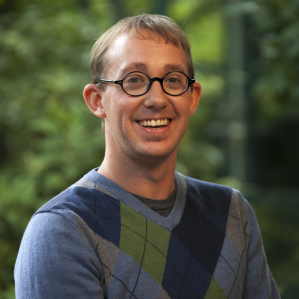Ryan Hurley
Bio
Ryan J. Hurley is originally from Minnesota, where he completed his BA at Concordia College in Communication. He attended Kansas State University for his MS degree, before moving to Illinois to complete his PhD in Communication at the University of Illinois at Urbana-Champaign.
Dr. Hurley spent year at Wake Forest University as a Visiting Assistant Professor before joining the Department of Communication here at NC State.
Projects
Dr. Hurley primarily, but not exclusively, investigates the area of communication most commonly referred to as “media content and effects.” He has investigated the content and effects of cancer information in Internet news, racial portrayls in Internet news, direct-to-consumer drug advertisements, and uncertainty management processes in women living with HPV.
Office Hours
- By Appointment
Books
Hurley, R. J. (2021). A Researcher’s Toolbox: Foundational Methods in Communication. Dubuque, IA: Great River Learning.
Research Publications
At least 881 Total Cites (533 since 2017) according to Google Scholar
Bell, K., Stein, S. R., & Hurley R. J. (2017) When public institutions betray women: News coverage of military sexual violence against women 1991-2013. Journal of Interdisciplinary Feminist Thought.
Kosenko, K. A., Bond, B. J., & Hurley, R. J. (2016). An exploration into the uses and gratifications of media for transgender individuals. Psychology of Popular Media Culture. doi:10.1037/ppm0000135
Kosenko, K. A., Binder, A. R., & Hurley, R. J. (2016). The Angelina Effect? Jolie’s impact on health-related beliefs and behavioral intentions. Journal of Health Communication, 21, 318-326. doi:10.1080/10810730.2015.1064498
Hurley, R. J., Jensen, J. D., Weaver, A. J., & Dixon, T. L. (2015). Viewer ethnicity matters: Black crime in TV news and its impact on decisions regarding public policy. Journal of Social Issues, 71, 155-170. doi:10.1111/josi.12102
Riles, J., Sangalang, A., Hurley, R. J., & Tewksbury, D. (2015). Framing cancer in online news: Implications for popular perceptions of cancer. Journal of Communication, 65, 1018-1040. doi:10.1111/jcom.12183
Hurley, R. J., Riles, J., & Sangalang, A. (2014). Online cancer news: Trends regarding article types, specific cancers, and the cancer continuum. Health Communication, 29, 41-50. doi:10.1080/10410236.2012.715538
Kosenko, K. A., Harvey, J., Hurley, R. J. (2014). Uncertainty management processes and problems of women with HPV. Manuscript accepted for publication at Journal of Health Communication, 19, 813-824. doi:10.1080/10810730.2013.864728
Jensen, J. D., Lynam-Scherr, C., Brown, N., Jones, C., Christy, K., & Hurley, R. J. (2014). Public estimates of cancer frequency: Cancer incidence perceptions mirror distorted media depictions. Journal of Health Communication, 16, 609-624. doi:10.1080/10810730.2013.837551
Hurley, R. J. & Tewksbury, D. (2012). News aggregation and content differences in online cancer news. Journal of Broadcasting & Electronic Media, 56, 132-149. doi:10.1080/08838151.2011.64868
Jensen, J. D., & Hurley, R. J. (2012). Conflicting stories about public scientific controversies: Effects of news coverage and divergence on scientists’ credibility. Public Understanding of Science, 21, 689-704. doi:10.1177/0963662510387759
Kosenko, K. A., Hurley, R. J., & Harvey, J. (2012). Sources of the uncertainty experienced by women with HPV. Qualitative Health Research, 22, 534-545. doi:10.1177/1049732311424404
Hurley, R. J., Kosenko, K. A., & Brashers, D. E. (2011). Uncertain terms: Message features of online cancer news. Communication Monographs, 78, 370-390. doi:10.1080/03637751.2011.565061
Weaver, A. J., Jensen, J. D., Martins, N., Hurley, R. J., & Wilson, B. J. (2011). Children’s enjoyment of animated violence and action. Media Psychology, 14, 49-70. doi:10.1080/15213269.2010.547829
Jensen, J. D., Moriarty, C., Hurley, R. J., & Stryker, J. E. (2010). Making sense of cancer news coverage trends: A comparison of three comprehensive content analyses. Journal of Health Communication, 15, 136-151. doi:10.1080/10810730903528025
Jensen, J. D., & Hurley, R. J. (2005). Third-person effects and the environment: Social distance, social desirability, and presumed behavior. Journal of Communication, 55, 242-256. doi:10.1111/j.1460-2466.2005.tb02670.x
INVITED PUBLICATIONS & BOOK CHAPTERS
Taylor, N., Jensen, J., de Castell, S., & Hurley, R. J. (2017). Social interactions in virtual worlds. In K. Lakkaraju, G. Sukthankar, & R. T. Wigand (Eds.) Management (im)material: Negotiating leadership in virtual worlds. Cambridge: Cambridge University Press
Hurley, R. J. (2015, April 21). Behavior analysis: Media’s impact on race and crime. Interviewed by Seema Iyer [digital video recording]. MSNBC.com’s live video webcast, “The Docket.” Recording available at: http://www.msnbc.com/shift/watch/the-docket-431306819650 or on.msnbc.com/1zG23sJ
Hurley, R. J. (2015, April 19). Media’s impact on race and crime. Interviewed by Cash Michaels. Interview for Cash Michael’s AM radio show on Power 750 WAUG-AM.
Hurley, R. J. (2015, April 18 & 19). Media’s impact on race and crime. Interviewed by Scott Briggaman [digital audio recording]. Two-part interview for WPTF NewsRadio 680 AM. Copy in possession of interviewee.
Hurley, R. J. (2014). Media coverage drives some misperceptions about cancer. The Abstract. Available online at https://news.ncsu.edu/2014/01/hurley-cancer-media/
Hurley, R. J. (2011). Uncertain about cancer? So is online news. Communication Currents, 6 (5). Available online at Uncertain About Cancer News?
Josey, C., Hurley, R. J., Hefner, V., & Dixon, T. L. (2009). Racial representations in online news. In R. A. Lind (Ed.), Race/Gender/Media: Considering diversity across audiences, content, and producers. Boston: Pearson Education, Inc.
Education
B.A. Communication Studies Concordia College 2001
M.A. Speech Communication Kansas State University 2003
Ph.D. Speech Communication University of Illinois at Urbana-Champaign 2009
Area(s) of Expertise
Dr. Hurley is interested in the intersection between mass communcation and issues of health. Specifically, his research interests look closely at the impact of search engines (and their algorithms) on the health news information Internet users receive.
